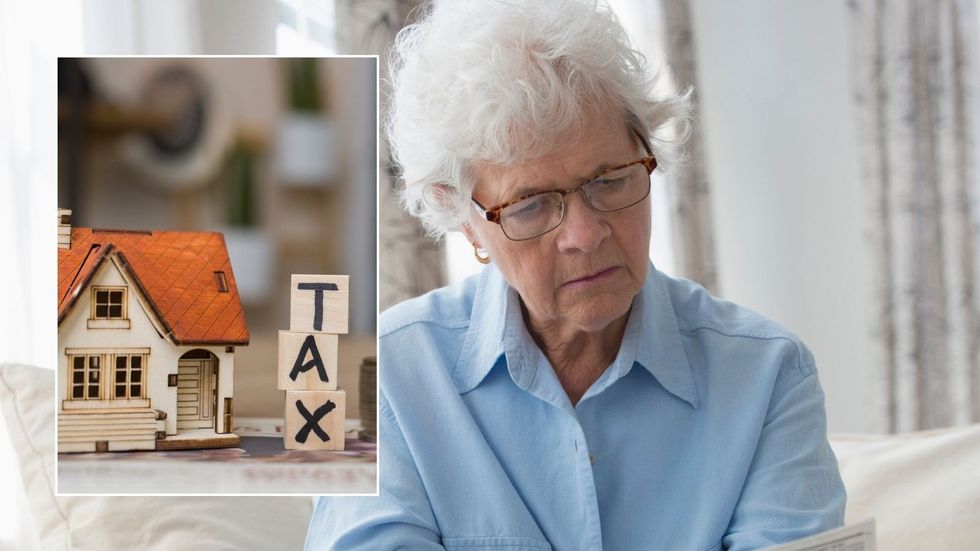Jasmine Birtles explains what she believes is the best way for the Labour Government to raise revenue
Experts propose reforming inheritance tax to boost government revenue
Don't Miss
Most Read
Trending on GB News
Inheritance tax reform is thought to be the "best way" for boosting Government revenue, according to recent expert analysis.
As Chancellor Rachel Reeves faces pressure to address a £22bn black hole in public finances, calls for overhauling the inheritance tax system have gained traction.
Jasmine Birtles, money expert and founder of MoneyMagpie suggests that inheritance tax might be a "better way" to bring in money compared to other taxes that could harm productivity in the economy.
With only four per cent of estates currently paying inheritance tax, she argues that reforms could increase revenue without significantly impacting economic growth or disincentivising work.
Speaking to Andrew Eborn on Octopus TV she discussed what Britons could expect from the Budget, as well as her own views on the best way to raise revenue.
She said: "If it was me I would look at inheritance tax. It is an unfair tax but all taxes are unfair to somebody - you just have to think about what works."

Inheritance tax receipts in the UK are on track for another record-breaking year
GETTYShe explained that it would not make sense to increase income tax as it can really harm the economy and disincentivise people in work. If people put higher rate tax on higher earners, it will push the richest people out of the country.
She continued: "It simply doesn't work to tax the richest more. It's not fair to make those earning more to pay more. I think that inheritance tax is an easier way to bring in a lot of money.
"It's an easier way to bring in money, and it effects less people. Only four per cent pay and it doesn't materially affect our productivity like VAT taxes do. I'm not happy about this as it's harming high street shops and businesses who are already on their uppers.
"You need to think what would harm the economy and what would stop people from working and amassing wealth and try not to do those. All taxes do harm but try what will do the least amount of harm."
The current inheritance tax system includes a £325,000 nil-rate band and an additional £175,000 residence nil-rate band for homeowners. This allows individuals to pass on up to £500,000 tax-free, or £1m for couples who can share allowances.
The residence nil-rate band, introduced in 2017, benefits homeowners leaving property to direct descendants. In 2021-22, 25,800 families claimed this extra allowance, sheltering £6.5bn of property and saving £2.6bn in tax.
However, the system has been criticised for its complexity and perceived unfairness. Childless or single individuals cannot use the residence nil-rate band, creating an inherent disparity.
As property prices have soared, more homeowners have been pulled into the inheritance tax net, prompting calls for reform.
The Resolution Foundation, a left-leaning think tank, has urged for the abolition of the £175,000 residence nil-rate band, a move that could generate £2bn annually.
They proposed a tiered system with 20 per cent, 30 per cent, and 40 per cent rates based on estate value. This could make the tax more progressive whilst maintaining revenue.
However, any changes are likely to be controversial. Scrapping the residence nil-rate band could cost some families up to £140,000 in additional tax.
Taxpayers are urged to prepare for potential changes, as the Government balances the need for revenue against concerns of fairness and economic impact.
Laura Hayward, tax partner at professional services and wealth management firm Evelyn Partners said: "Inheritance tax is likely to be a growth area for Treasury revenues in the coming years. With the baby boomer generation now hitting their 60s and 70s, some of that generation’s accumulated wealth is being passed on to children and grandchildren, and getting taxed on the way.
"The ‘great wealth transfer’ is also underway because many of the older, asset-rich generations are making lifetime gifts to their families. As the wave of inheritance is set to grow over the next 30 years to a transfer of £5.5trillion, the temptation for successive Governments will be to tap into it to plug gaps in the public finances.
“The Office for Budget Responsibility forecasts that the share of deaths resulting in the payment of inheritance tax will rise to 6.3 per cent by 2028–29, the highest level since the 1970s.
"That proportion was as low as 2.7 per cent in 2009/10. Revenue from inheritance tax and its predecessors has increased over time in real terms, from around £2bn in 1980/81, to £7.5bn in 2023/24, and will reach almost £9bn by 2028/29 (all amounts in 23/24 prices)."








